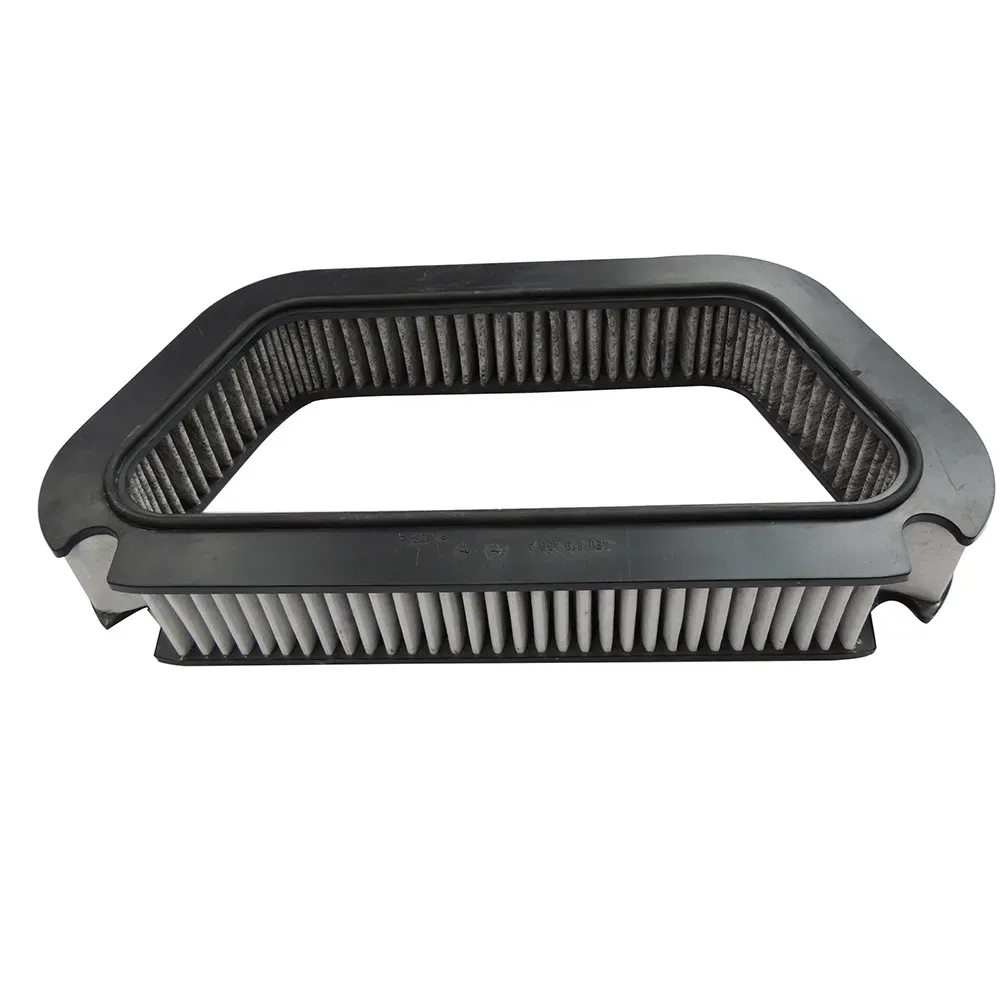
Fuel purity is more than a detail—it’s the foundation of your engine’s performance. A high-quality gasoline filter ensures that every drop of fuel powering your vehicle is free of contaminants, water, and microscopic particles. Whether you're concerned about injector wear, combustion efficiency, or long-term engine health, integrating an advanced automotive fuel filter into your system is a smart and essential upgrade. If you're seeking dependable performance and protection, now is the time to make your fuel system work smarter.

Understanding the Key Differences Between Gasoline and Diesel Filters
One common misconception among vehicle owners is that fuel filters are all the same. However, the difference between a gasoline filter and a diesel fuel filter lies in the fuel's composition and the engine's operating pressure.
Gasoline, being lighter and cleaner-burning than diesel, requires a gasoline filter optimized for lower viscosity and finer particle filtration. These filters are designed to trap debris, rust, and other particles that could harm the sensitive components of a gasoline engine, such as fuel injectors and the throttle body.
In contrast, diesel filters must not only remove particles but also effectively separate water from the fuel, as diesel is more prone to water contamination. Diesel filters are typically larger, built with water separation chambers, and sometimes include sensors for water detection.
Installing a gasoline filter in a diesel vehicle—or vice versa—can lead to serious system failures. That’s why selecting a purpose-built automotive fuel filter is not just a matter of performance—it’s a matter of protection and longevity.
Do You Need to Reset the ECU After Replacing the Gasoline Filter?
One of the most frequently asked questions by car owners is whether replacing a gasoline filter requires resetting the vehicle’s Engine Control Unit (ECU). The short answer is: in most modern vehicles, no reset is necessary. The ECU continuously adjusts to changes in fuel pressure and delivery through built-in sensors.
However, in some models with advanced fuel injection systems, a drop or surge in fuel pressure after replacing the automotive fuel filter could trigger a temporary warning light or fault code. In such cases, it's advisable to clear the codes using a diagnostic tool. But for the vast majority of gasoline-powered cars, the ECU recalibrates automatically within a few drive cycles.
Still, it’s always best to consult your vehicle’s service manual or a qualified technician when making fuel system replacements. Proper installation of the gasoline filter ensures seamless integration without affecting your vehicle’s electronic controls.
Exploring the Structural Design of a Gasoline Filter
While the gasoline filter may seem like a simple component, its internal design is highly engineered to handle the demands of a high-pressure fuel system.
The structure of a typical automotive fuel filter includes:
Inlet and outlet ports: These connect the filter to the fuel line, ensuring a tight seal and uninterrupted flow.
Filter media: This is the heart of the unit—made from pleated paper, synthetic fibers, or a combination of both. It captures fine particles as small as 5 microns.
Metal or plastic casing: This encases the filter media, offering mechanical strength to withstand fuel pressure fluctuations.
Bypass valve (optional): In case the filter is clogged, this valve allows fuel to bypass the filter media to prevent engine starvation.
Drain plug or sensor (rare in gasoline filters): Typically found in diesel versions, but some advanced gasoline filter units may include diagnostic features.
The robust construction of modern automotive fuel filters ensures both durability and precision in high-demand driving environments. It's a small investment that pays off in smoother performance and longer engine life.
The Value of Using a Particulate Filter Petrol System for Cleaner Fuel Flow
When you think of engine performance, cleanliness isn't always top of mind—but it should be. The modern particulate filter petrol system is a specialized type of gasoline filter engineered to remove ultra-fine particles that could cause premature wear in sensitive fuel system components.
These filters are especially valuable in vehicles with direct fuel injection systems, where any contamination can severely impact spray patterns, combustion, and emissions. A particulate filter petrol solution doesn't just keep the fuel clean—it optimizes combustion and improves mileage.
Drivers who choose advanced automotive fuel filter systems that include particulate filtration often notice a tangible improvement in fuel efficiency, throttle response, and emissions performance. It’s a win for both your engine and the environment.
Gasoline Filter FAQs
What contaminants does a gasoline filter remove?
A gasoline filter removes rust, debris, dirt, and other particulate matter from the fuel, ensuring clean delivery to the combustion chamber and protecting injectors and pumps.
Can I use the same fuel filter for diesel and petrol engines?
No. Diesel and petrol filters have different designs and requirements. A gasoline filter is not built to separate water like a diesel filter and may not handle the higher pressure demands of diesel systems.
How often should I replace my automotive fuel filter?
Most manufacturers recommend changing your automotive fuel filter every 20,000 to 30,000 miles, though this may vary depending on vehicle type and fuel quality.
Will a clogged gasoline filter affect engine performance?
Absolutely. A clogged gasoline filter restricts fuel flow, causing hard starts, stalling, poor acceleration, and even engine misfires.
What is the difference between a standard fuel filter and a particulate filter petrol type?
A standard gasoline filter removes larger contaminants, while a particulate filter petrol design targets microscopic particles for even cleaner fuel flow, ideal for high-performance or modern fuel injection systems.
-
Vehicle Performance with Premium Car Filter SolutionsخبرونJul.02,2025
-
Upgrade Engine Performance with Timely Air Filter MaintenanceخبرونJul.02,2025
-
Optimize Vehicle Health with Timely Air Filter ReplacementخبرونJul.02,2025
-
Every Drive with Next-Level Car Filtration SystemsخبرونJul.02,2025
-
Driving Comfort with Advanced Air Filtration SystemsخبرونJul.02,2025
-
Cleaner with Next-Generation Automotive Air FiltrationخبرونJul.02,2025
-
The Importance of Cabin Filter and Engine Filter: The Role and Maintenance of Cabin Filter and Engine FilterخبرونJun.25,2025
لاڳاپيل مصنوعات




